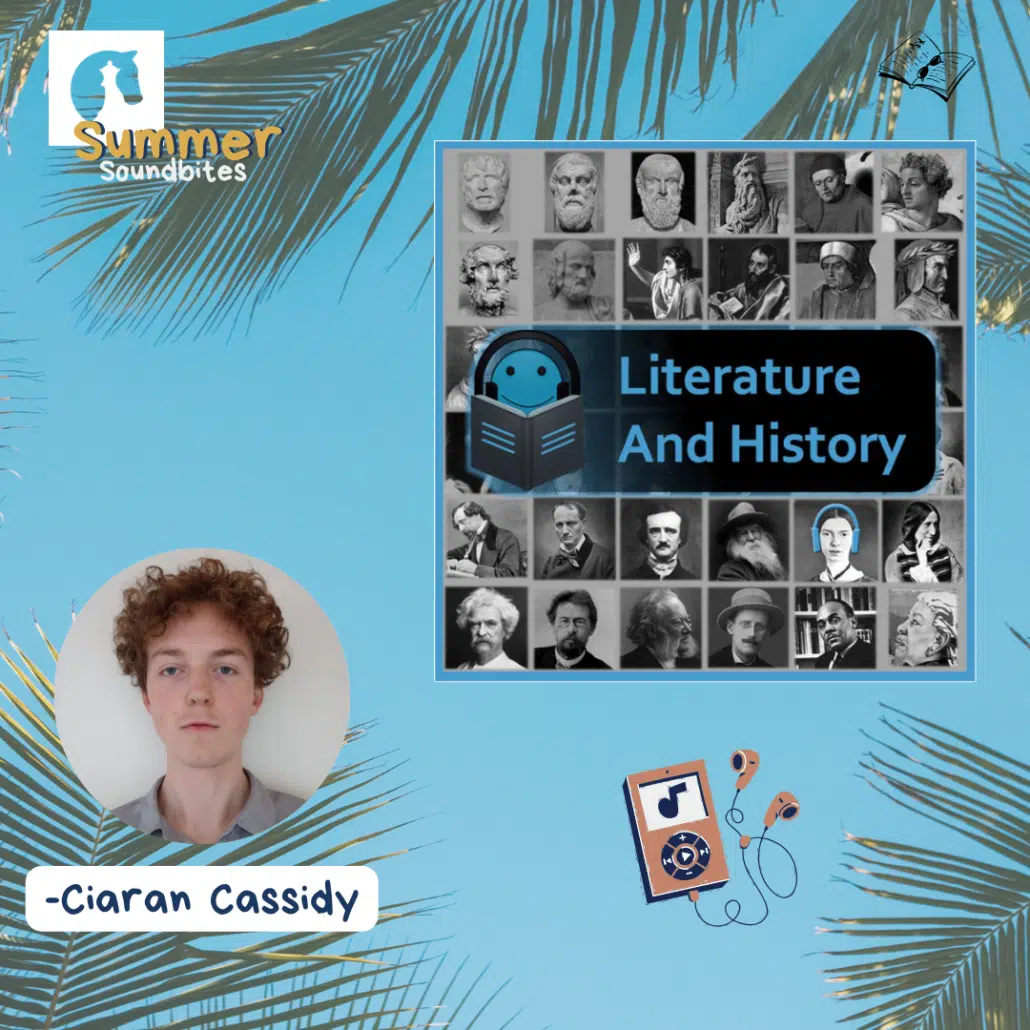Looking for the perfect summer read? The HCSS Summer Bookshelf is back! Once again, our analysts and experts have assembled a hand-picked selection of books to inspire, inform and entertain.
Whether you’re seeking clarity, curiosity, or just a compelling companion for the long summer days, these books will keep your mind sharp while the sun does the rest.
Your summer starts here: with the HCSS Summer Bookshelf!
Strategic Analyst Davis Ellison recommends:
”Homeland: The War on Terror in American Life” by Richard Beck
One of the best works of the political, cultural, and economic impacts and changes connected to the U.S. global war on terror. Being originally from the U.S., I would make sure to assign this to any group of European students and researchers who are either too young or were too distant to experience this era personally. Beck’s argument that the war on terror infected not only American policy but the everyday life of people in the U.S. and around the world resonates and only resonates more every day.

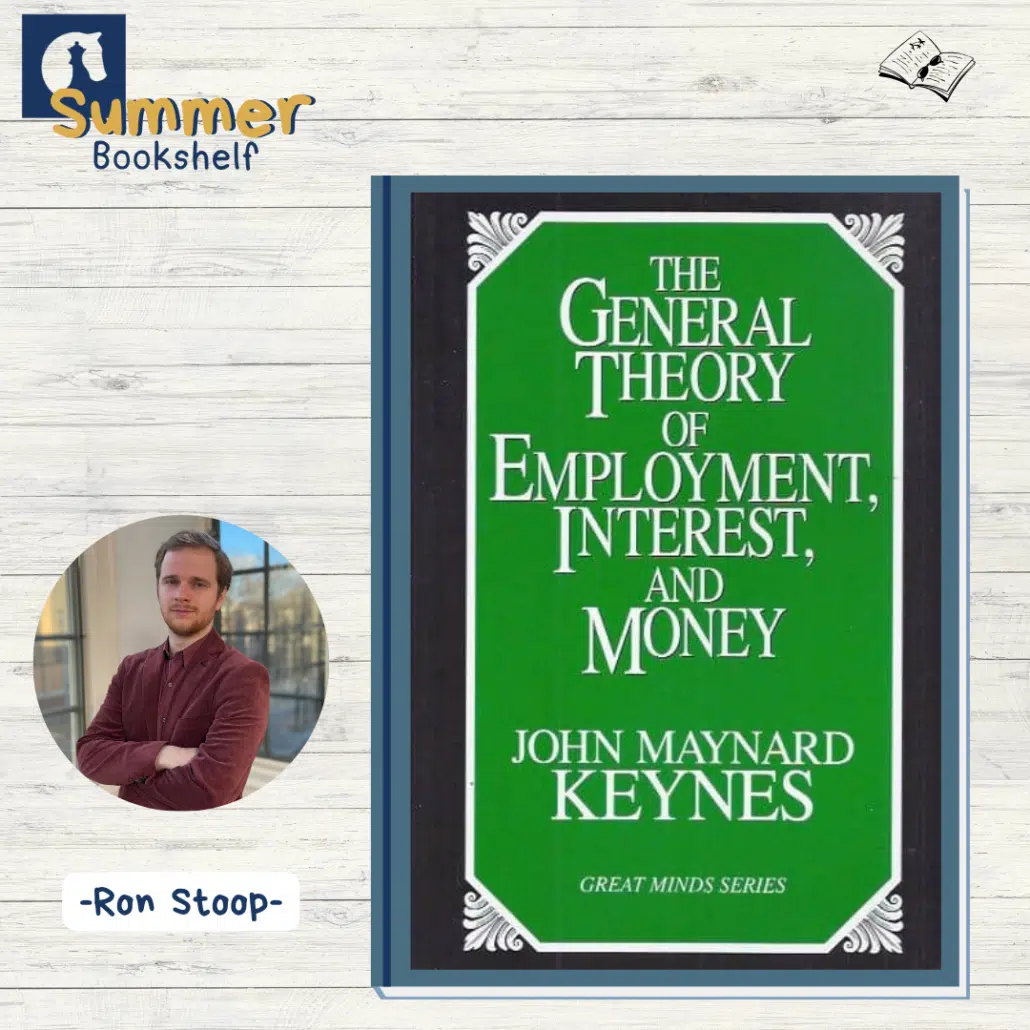
Strategic Analyst Ron Stoop recommends:
“The General Theory of Employment, Interest and Money” by John Maynard Keynes
With Europe in economic disarray, it’s time to brush off the economic knowledge that was so influential in the 1930s and 1940s. The large transitions for our energy system and our defence industry require new ways of thinking, beyond the standard neoclassical economic approaches that were dominant in the 80s-00s. To be fair, it is a bit of a technical read, but if you sit out the troughs it has the potential to change your (economic) worldview!
Executive Director Paul Sinning recommends:
“The Coming Storm” by Gabriel Gatehouse
Intriguing research and book about the devastating and toxic effects conspiracies can and will have on societies and nation-systems. How to make use of the MAGA-movement to deliberately accelerate climate breakdowns en civil disorders? Who will benefit? This book will definitely change the way you look at Big-Tech.
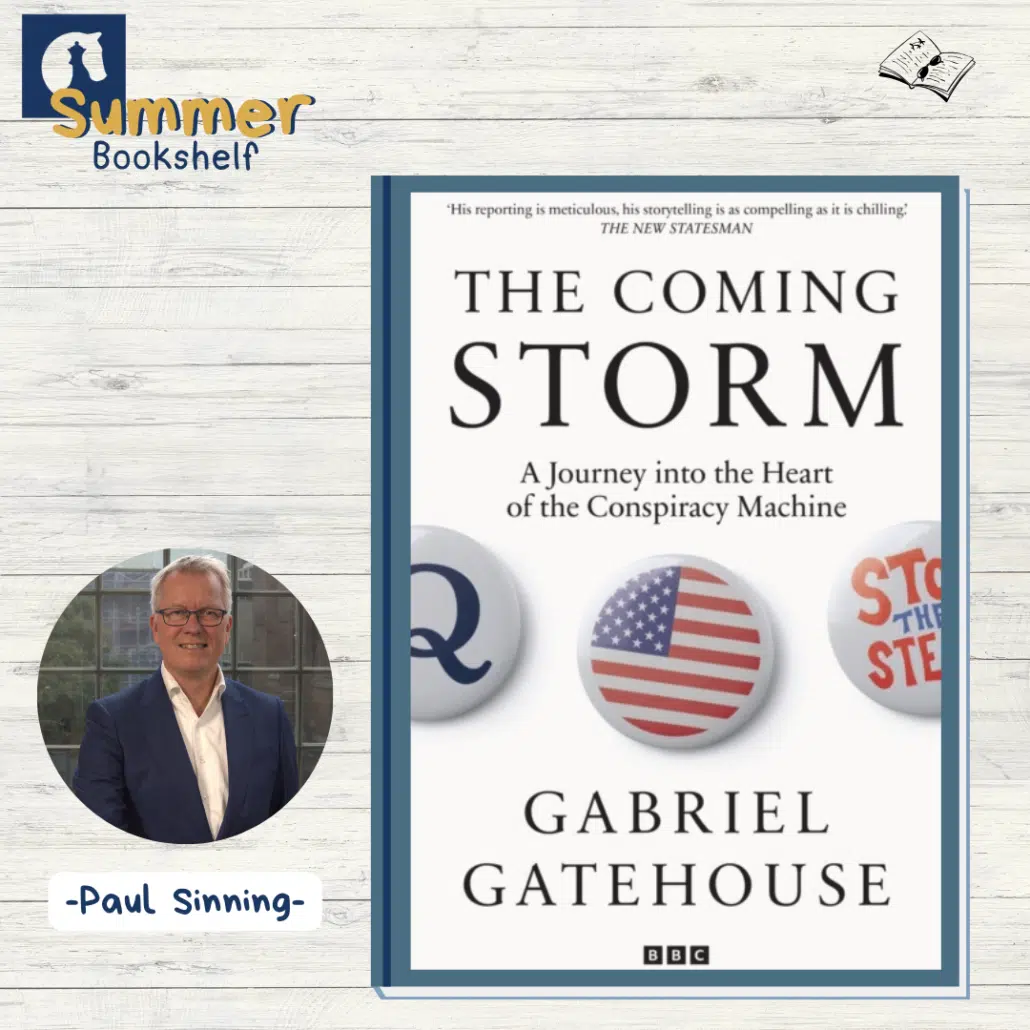
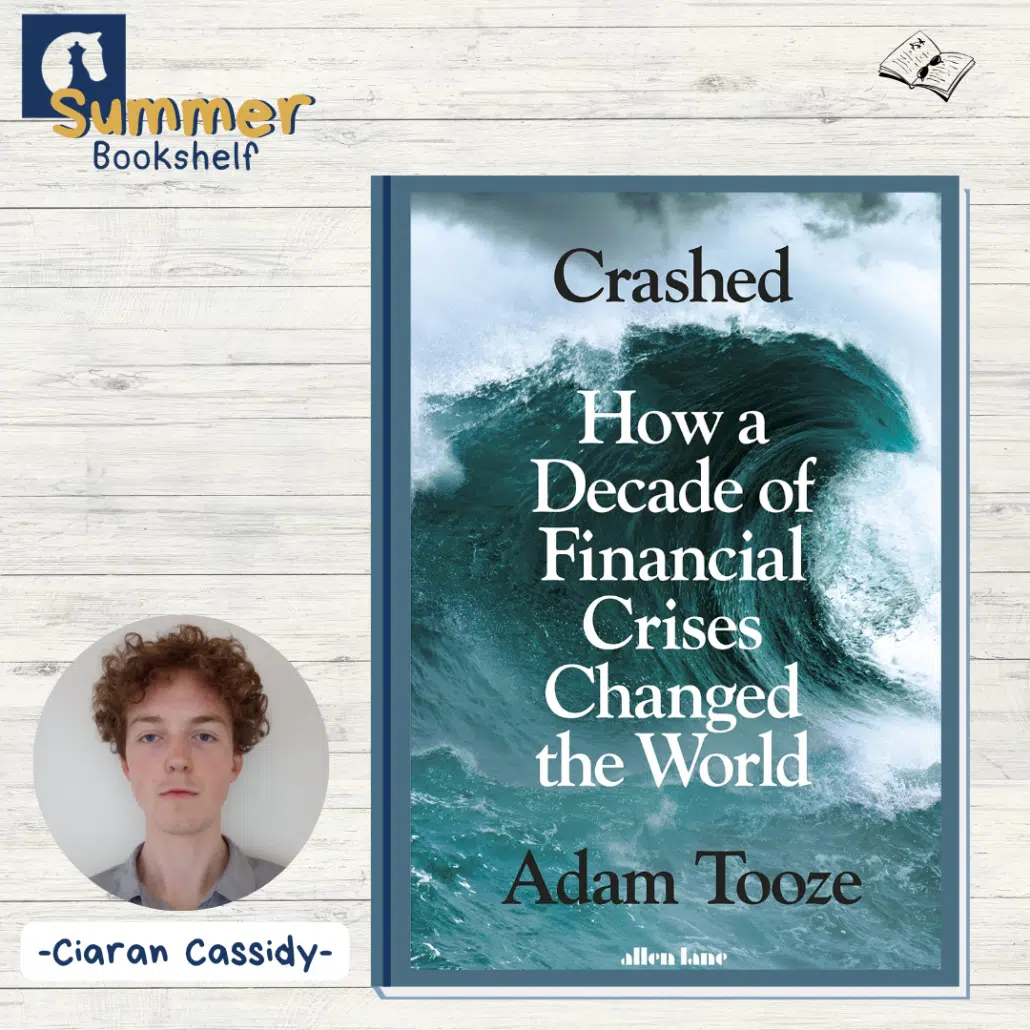
Assistant Analyst Ciaran Cassidy recommends:
“Crashed: How a Decade of Financial Crises Changed the World (2018)” by Adam Tooze
Probably the definitive book on the 2008 Financial Crisis and Eurozone Crisis, perhaps the most important historical event of the last 30 years. Tooze gives an incredibly well-researched and detailed account of the key decisions, financial processes, institutions, and actors that led to the crisis and the often chaotic and ineffective efforts to alleviate it. The book’s treatment of contingency and the “roads not taken” as well as structural determinants is a refreshing take on a topic that is often dominated by ideological narratives.
Strategic Advisor Patrick Bolder recommends:
“Astropolitik- Classical Geopolitics in the Space Age” by Everett C. Dolman
Dolman wrote this book in 2002, at a time when we all believed that Fukuyama’s ‘The End of History’ had its merits. Dolman also wrote at the time that the Space Race is over, but also saw a reinvigoration as plausible. How right he was! Space has moved to the foreground with commercialisation leading to mass constellations of satellites and the appreciation of space as an essential military domain in the years following the publication of this book. The insights presented are still valuable and have become of increasing importancy in international relations, especially where tensions arise. Markedly, his statement that: “Who controls cis-lunar space, controls Low Earth Orbit, who controls Low Earth Orbit controls Earth and who controls Earth decides over the fate of the human race” is telling and frightening at the same time.
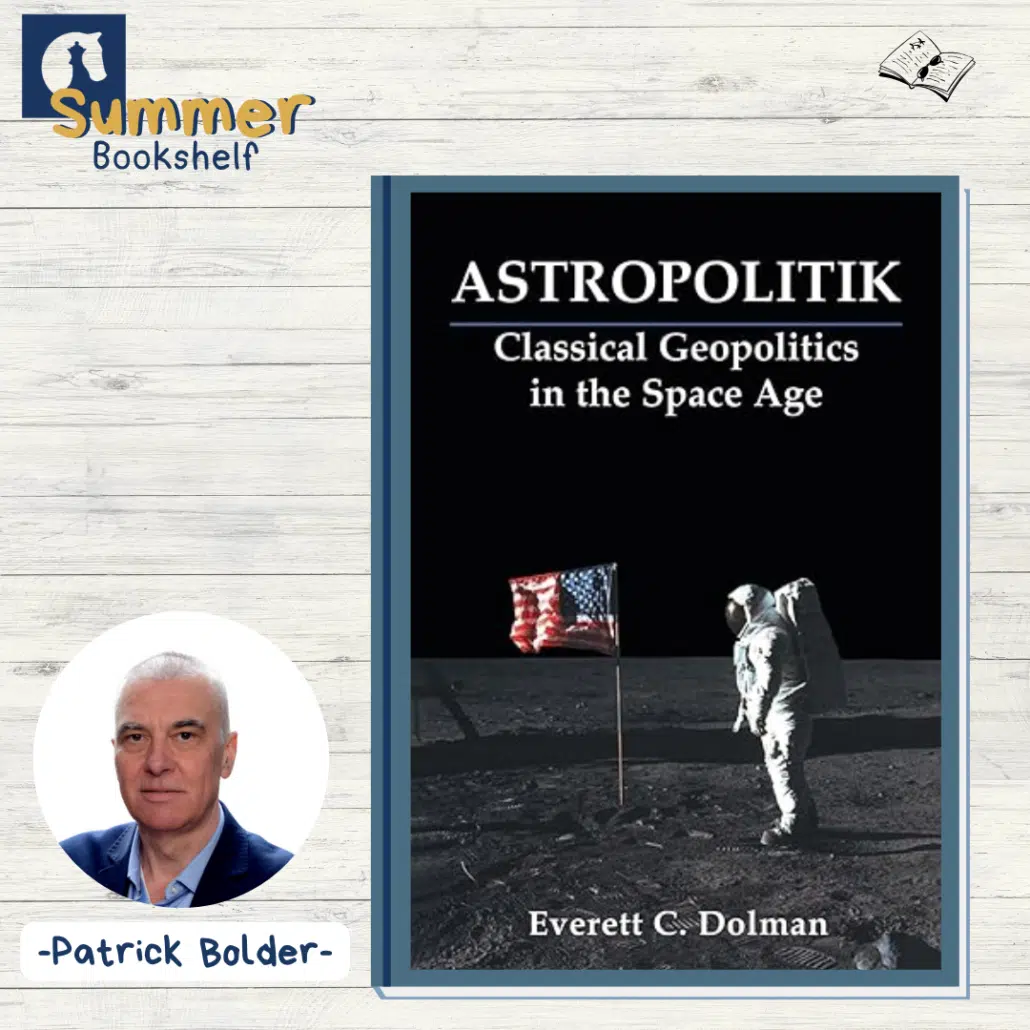
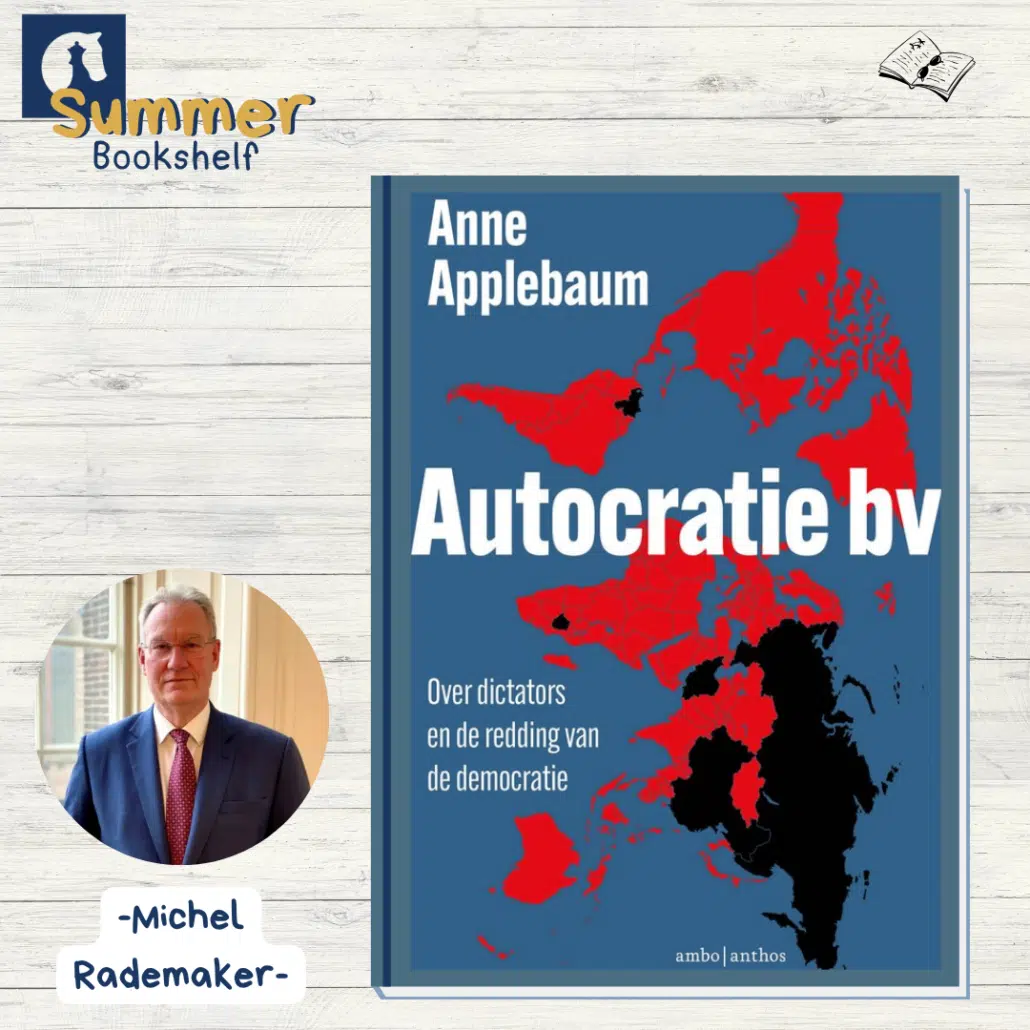
Deputy Executive Director Michel Rademaker recommends:
“Autocratie bv” by Anna Applebaum
Autocracy, Inc. is a powerful and urgent analysis by Pulitzer Prize-winning historian and journalist Anne Applebaum. In this book, she dismantles the outdated image of autocracies as isolated regimes led by singular strongmen. Instead, she reveals a modern, interconnected network of authoritarian states—what she calls “Autocracy, Inc.”—that collaborate across borders to undermine democratic institutions and values. These regimes, including Russia, China, Iran, and others, are not bound by ideology but by shared interests: power, wealth, and impunity. They support each other through financial corruption, surveillance technologies, propaganda, and repression, often enabled by democratic countries that turn a blind eye for economic gain. Applebaum argues that this global alliance of autocrats poses a serious threat to democracy worldwide. She calls for a strategic rethinking of how democracies respond—urging a new kind of containment policy to confront this 21st-century authoritarianism.
Assistant Analyst Philippe van Pappelendam recommends:
“Peacemakers” by Margaret MacMillan
If you’re interested in history, diplomacy, and the complexities of peace-making, I highly recommend Peacemakers by Margaret MacMillan. She vividly brings the 1919 Paris Peace Conference to life. Recounting how the “Big Three” otherwise known as the US, UK and France, set out to build a new world order inspired by Woodrow Wilson’s Fourteen Points. Their goal was lasting peace, but ambition, personal flaws, and clashing personalities complicated the negotiations. The decisions made during those tense months continue to shape our world today, offering a powerful reminder of how challenging the pursuit of peace can be.
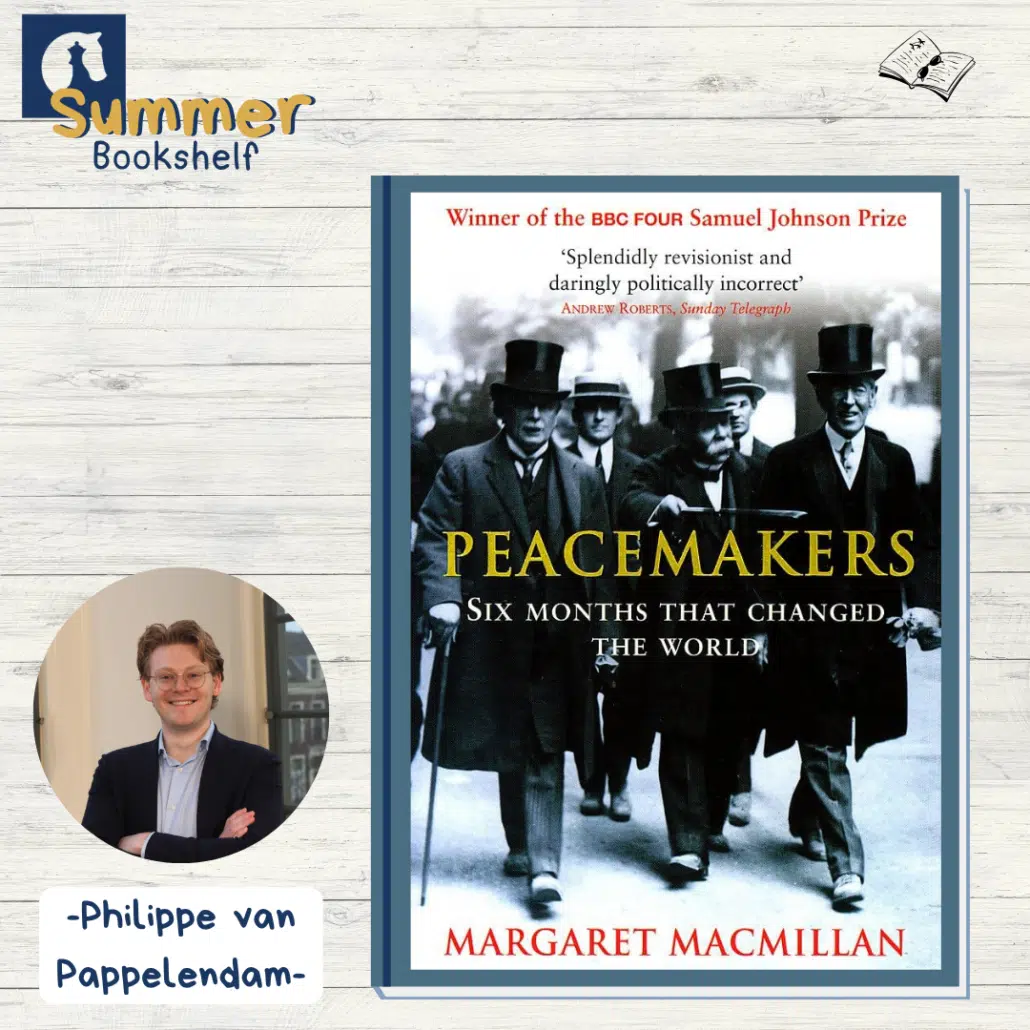
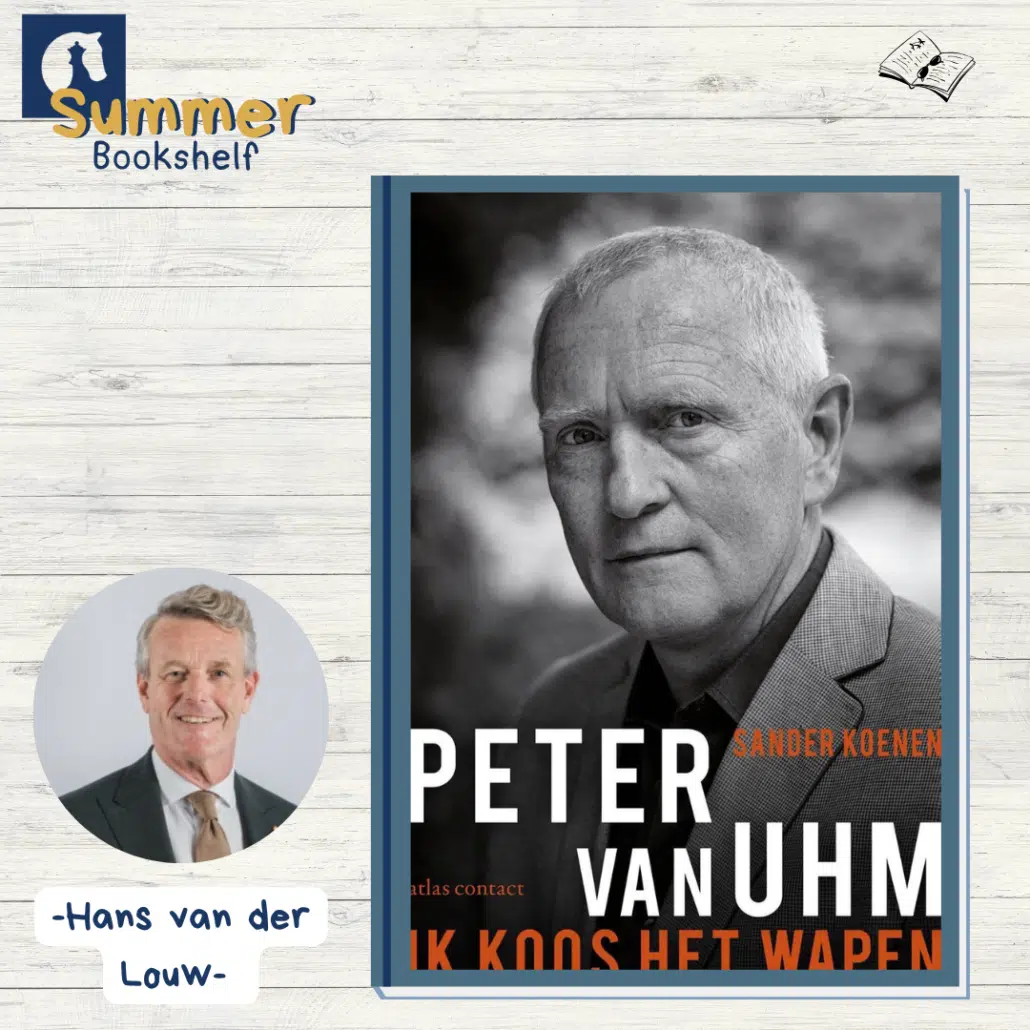
Senior Fellow Hans van der Louw:
“Peter van Uhm: Ik koos het wapen” by Sander Koenen
Why did General Peter van Uhm, former Commander Royal Netherlands Army and Commander Netherlands Armed Forces (CDS-CHOD) chose the military profession? And what leadership lessons did he learn in his 40 years in the military service? For all those who want to understand why (young) people decide to join the military, get a better feel for the camaraderie in units, and how to maintain your personal standards and values, even in the greatest moments of misery and sorrow, this book is a must-read.
Communications Manager Patrick Willemsen recommends:
“The Gallic Wars” by Julius Caesar
Julius Caesar’s The Gallic Wars is more than ancient history—it’s a window into leadership, strategy, and the power of narrative. With sharp, clear prose, Caesar recounts his military campaigns while subtly shaping his own image for Rome. Modern readers will find timeless insights into political ambition, propaganda, and the complexity of conflict. Whether you’re interested in history, leadership, or 2000-year-old personal marketing, this classic offers a fascinating look at how one of the most important men in history used words and war to shape the world.
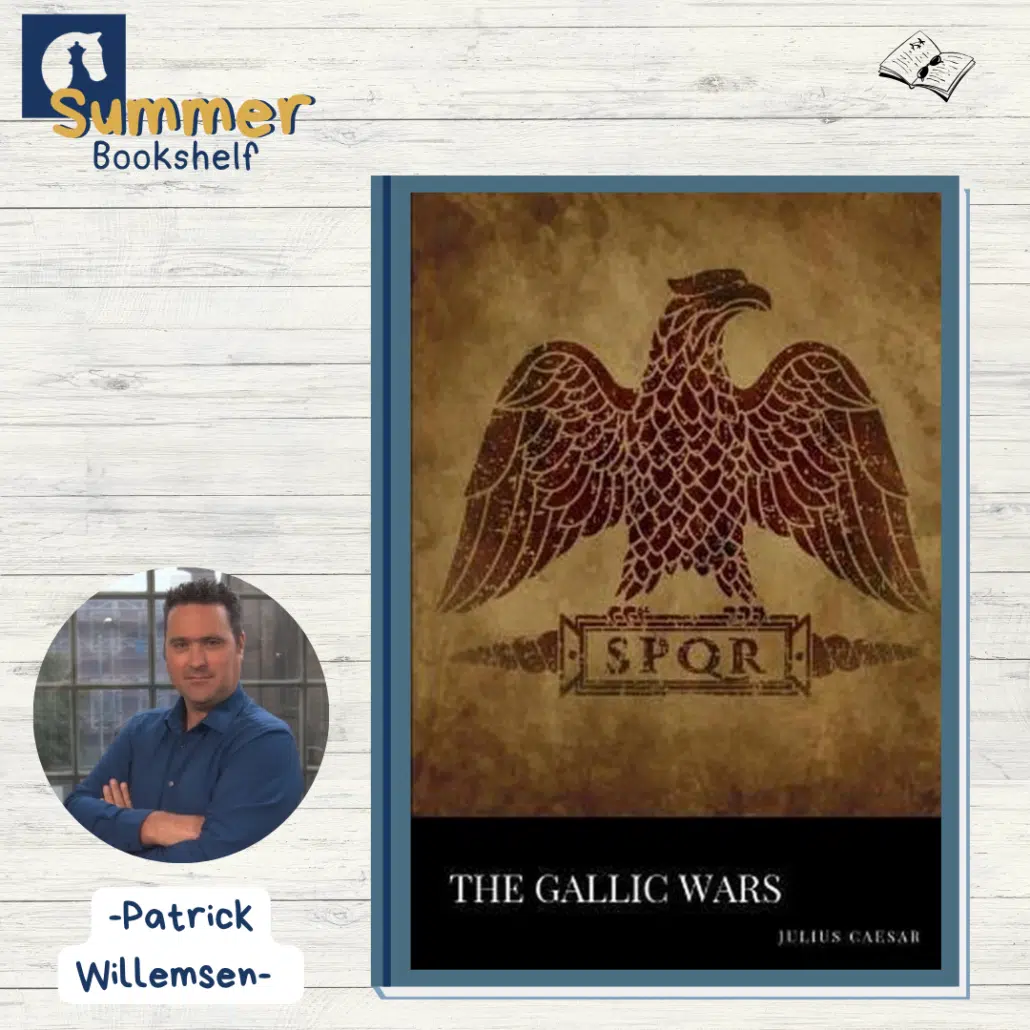
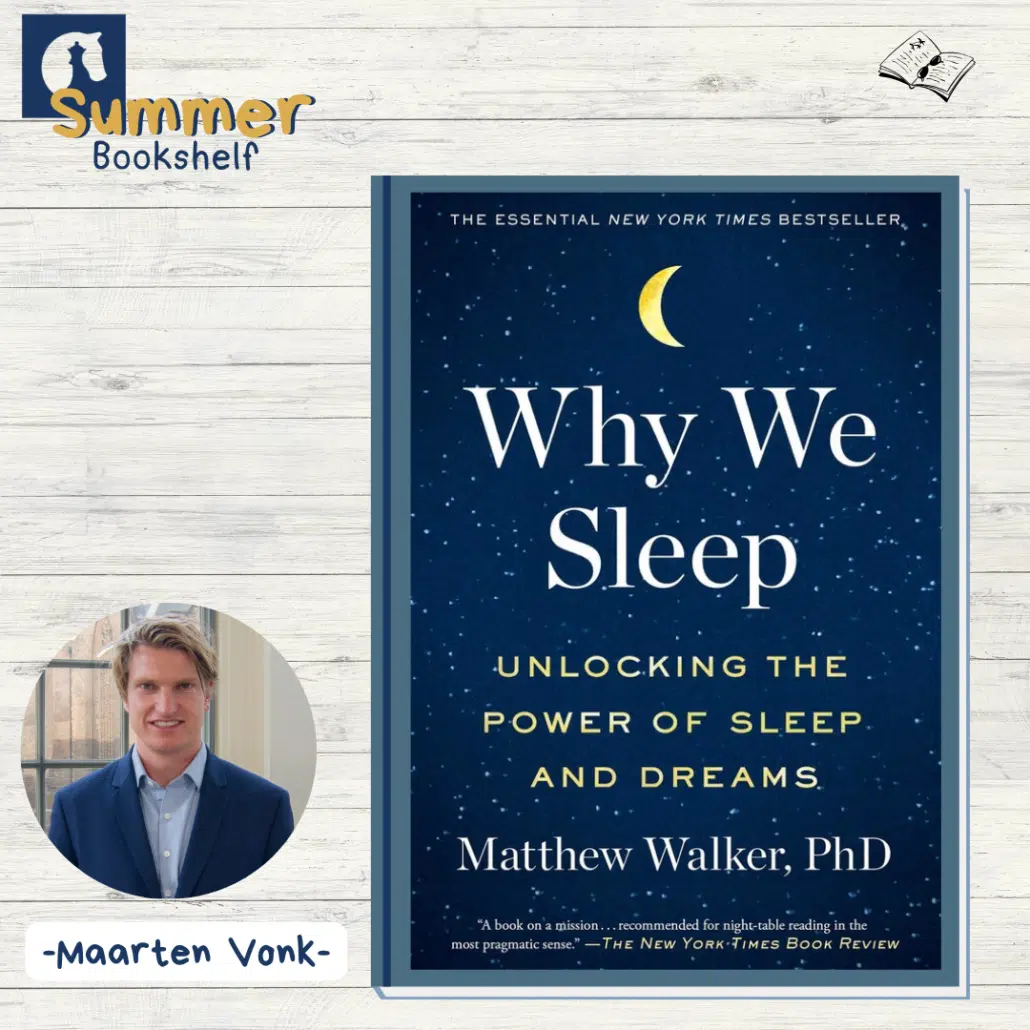
Data Scientist Maarten Vonk recommends:
“Why we sleep” by Matthew Walker
Why We Sleep by Matthew Walker is essential reading given we spend eight hours daily in this state. Moving far beyond Hume’s philosophical musings on dreams, Walker delivers hard science on sleep’s critical functions: memory consolidation, learning, creativity, and immune system repair. The neuroscientist systematically dismantles sleep myths while revealing how chronic deprivation wreaks havoc on our bodies and minds, increasing risks of Alzheimer’s, diabetes, and depression. Particularly compelling is his exploration of REM sleep’s role in creative problem-solving—explaining why we literally “sleep on” difficult decisions—and how REM sleep strips away emotional attachments from memories. Whether you’re burning the midnight oil or dismissing sleep as unproductive, this book will convince you that quality rest isn’t luxury but necessity for peak human performance.
Executive Assistant & HR Advisor Daniella Kranendonk recommend:
“Profijtabiliteit” by Paul ter Wal
Profijtabiliteit by Paul ter Wal offers a strategic HR perspective on how shared values and focused engagement drive long-term profitability. Highly recommended for anyone ready to build a purpose-driven workplace where people and profits grow together.
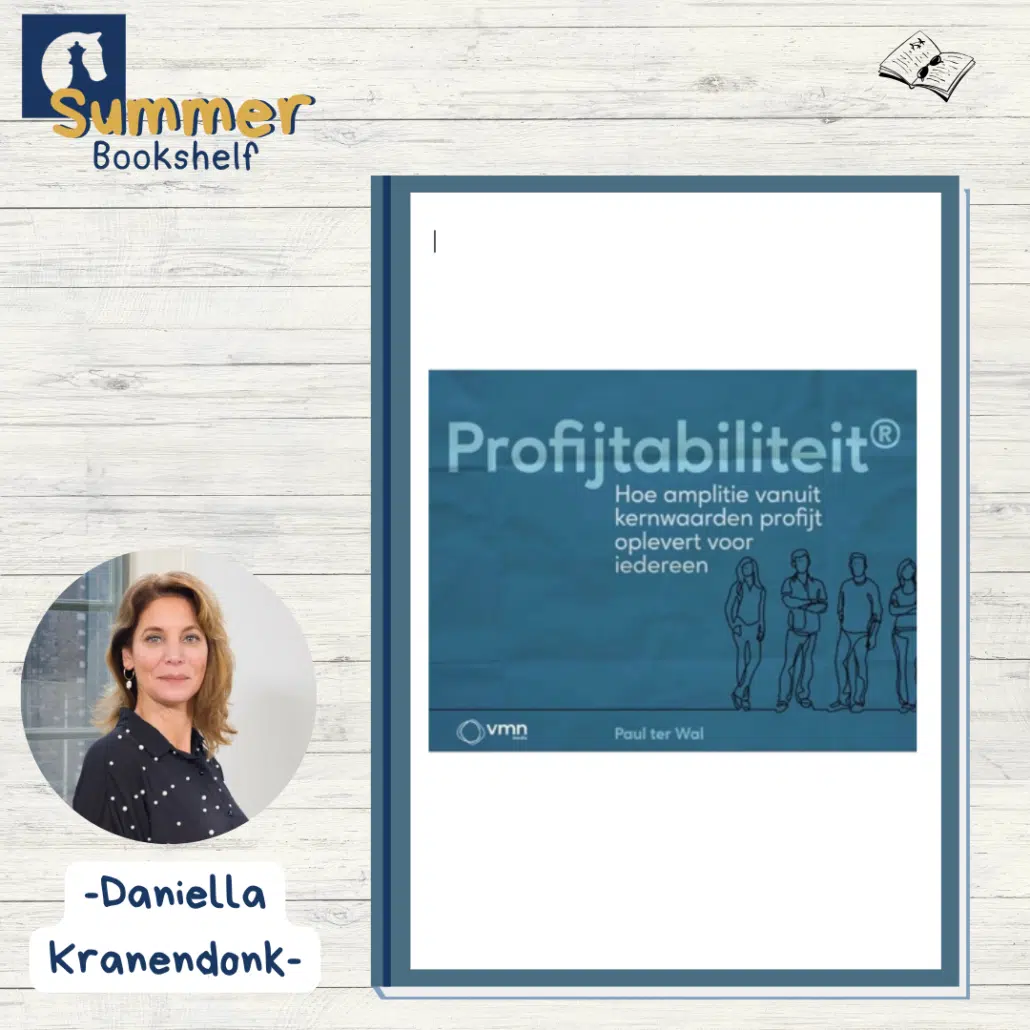
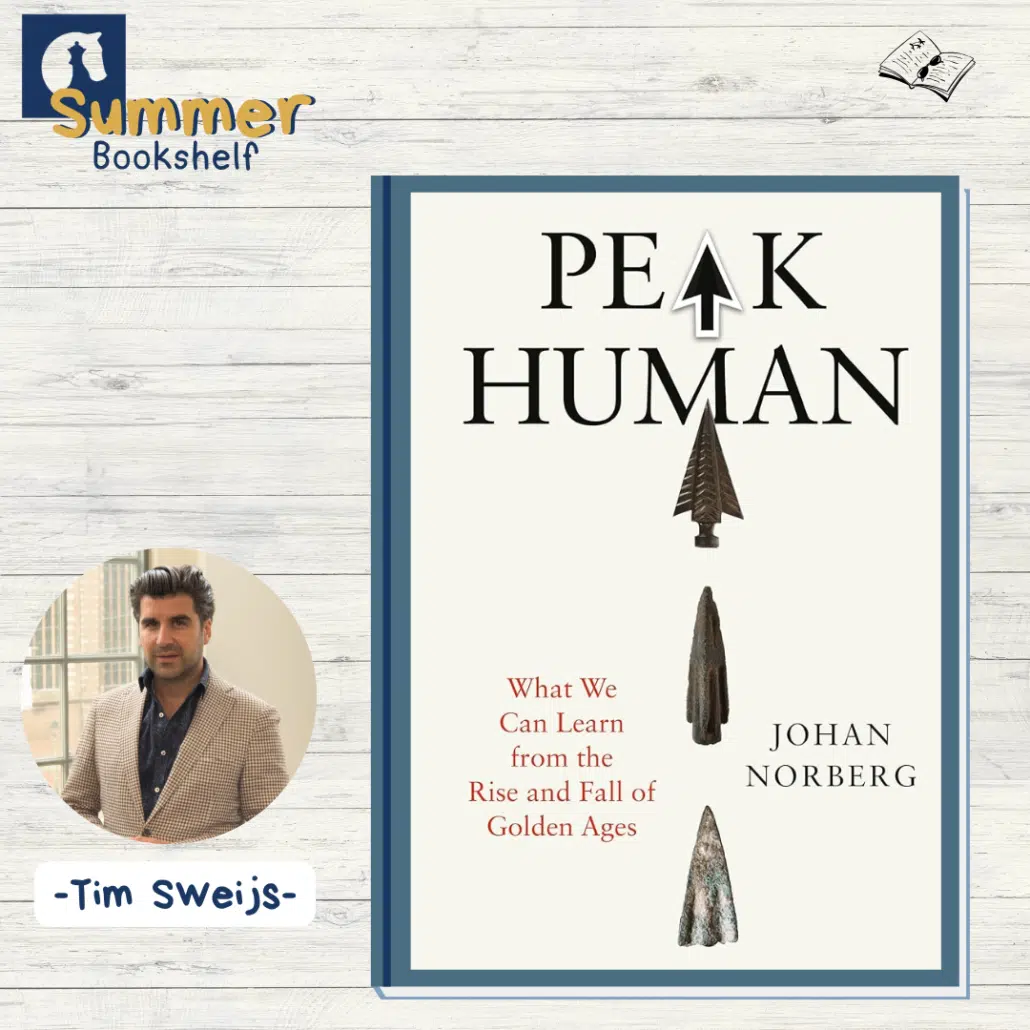
Director of Research Tim Sweijs recommends:
“Peak Human: What We Can Learn From History’s Greatest Civilizations” by Johan Norberg
In the age-old genre of great books describing the rise and fall of powers, Johan Norberg offers a wonderfully written account of why civilisations prosper – and why they decay. At times taking short cuts but always cutting to the chase, Norberg captures the heart and soul of efflorescence in seven case studies ranging from Ancient Athens and Abbasid Baghdad on to the Dutch Republic’s Amsterdam and the ‘Anglosphere’ of today. A captivating, colourful, and compelling argument against the insular spectres currently haunting the Western world.
Strategic Analyst Pieter-Jan Vandoren recommends:
“De Wisselwachter” by Geert Mak
Who was the most influential figure of the 1940s: Hitler, Stalin, Roosevelt, Churchill, or Harry Hopkins? In this epic book, Geert Mak makes the compelling case for the last. Hopkins, Roosevelt’s most trusted advisor through the New Deal and World War II, quietly shaped U.S. policy during the defining years of the twentieth century. A must-read for anyone interested in America, Europe, and the origins of the very world order now unravelling before our eyes.

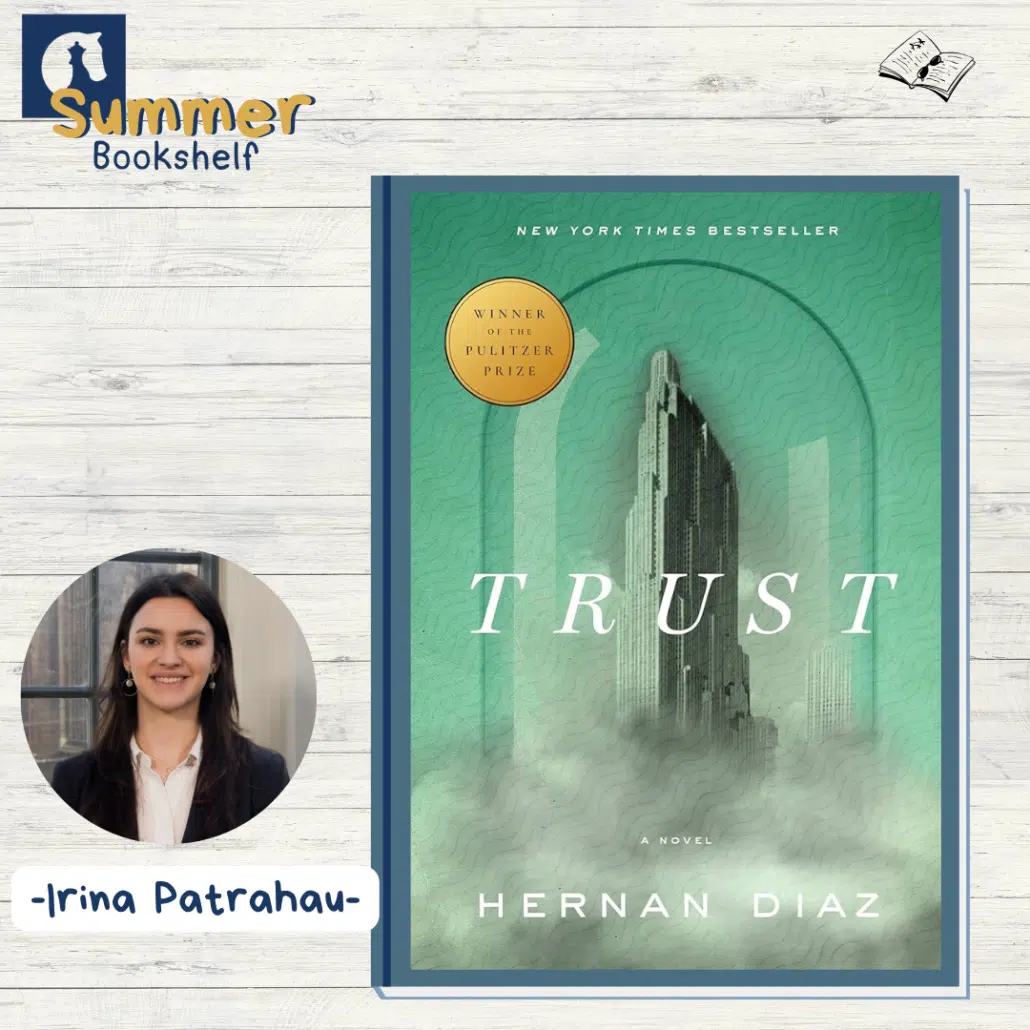
Strategic Analyst Irina Patrahau recommends:
“Trust” by Hernán Diaz
Trust by Hernán Diaz is a thrilling novel that explores the meaning of truth and narrative control over public perception. Set primarily in early 20th-century New York, the novel follows the life of a wealthy financier and his wife. The novel consists of four accounts of their lives, including ‘memoirs’ and fictional stories, forcing the reader to question whose version of events is trustworthy and why. The book demonstrates how narratives can shape history and identity, echoing real-world practices where political actors craft selective truths to serve their purposes.
Strategic Analyst Gerben Bakker recommends:
“Baltic – The future of Europe” by Oliver Moody
Moody combines vivid on-the-ground reporting with historical depth to show how Europe’s often overlooked but resilient nations in the North-East have become frontline defenders of liberal democracy against authoritarian pressure. At the same time, they are emerging as hubs of digital innovation, military reform, and cradles for a fresh European identity. By understanding the Baltic region, one gains insight into where the real battle for Europe’s security, competitiveness, and future coherence is being fought, and new perspectives perhaps for Europe may be gained.
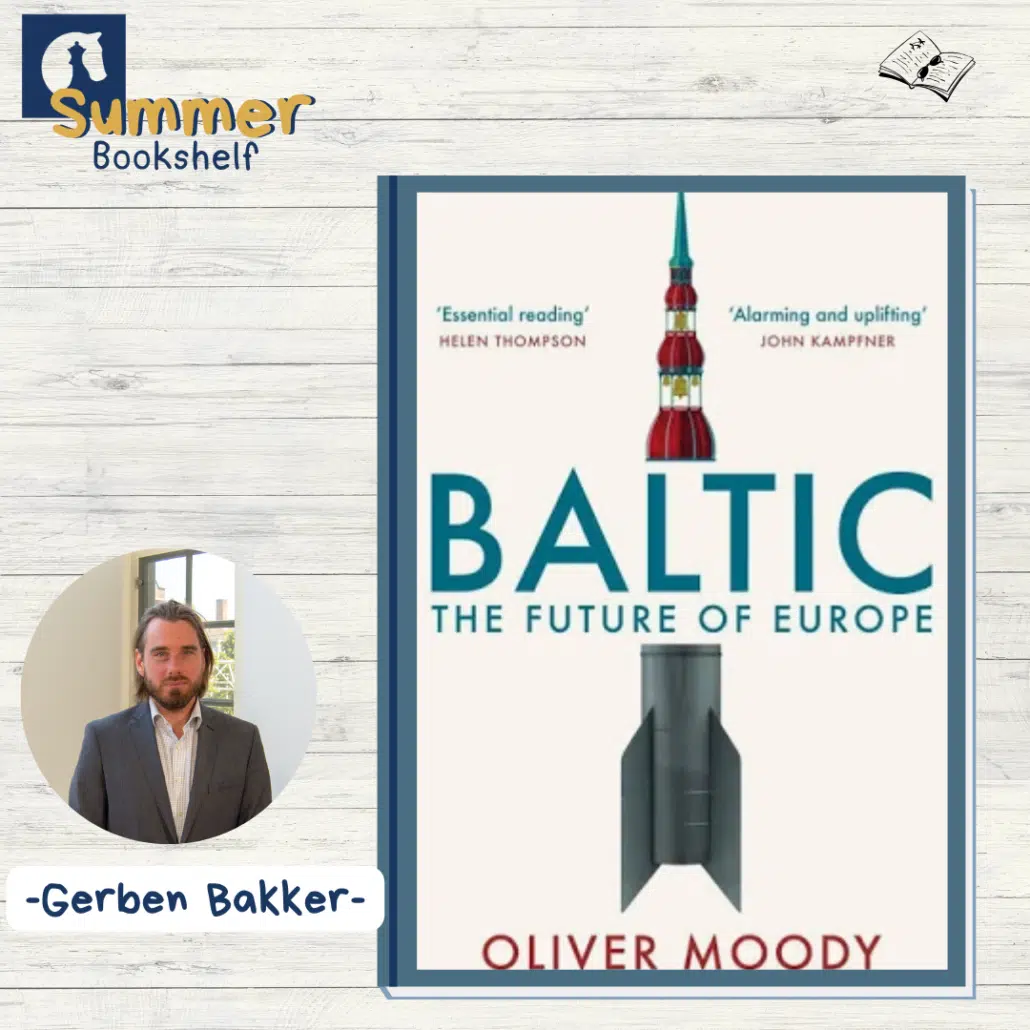
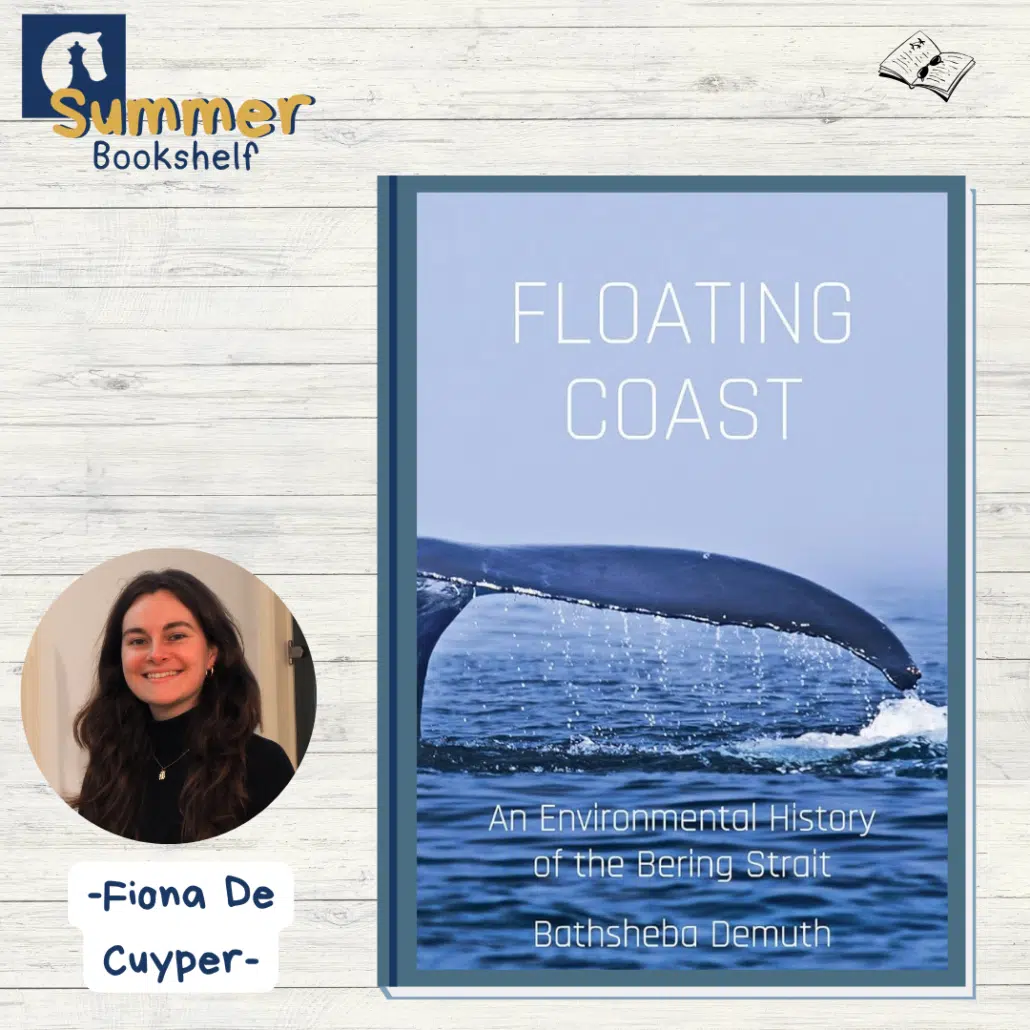
Strategic Analyst Fiona De Cuyper recommends:
“Floating Coast: An Environmental History of the Bering Strait” by Bathsheba Demuth
Although titled an “environmental history”, Floating Coast goes much further. Beringia is a region where American capitalism and Soviet socialism looked each other in the eye for much of the 20th century. Through rich archival and ethnographic research, the author argues that capitalism and communism operated from the same DNA: considering nature as a reservoir of wealth to be extracted, regardless of the human or non-human cost. By including Indigenous peoples, whales, walruses, and other beings in her historical frame, she challenges our thinking about temporality and the practical functioning of ideological systems; demonstrating how they “transform[ed] the world on remarkably similar terms.”
Strategic Analyst Hans Horan recommends:
“Life for Sale” by Yukio Mishima
My favourite work of the literary enigma that is Yukio Mishima. Mishima was not only a candidate for the Nobel prize in literature but also a politician and activist advocating for Japan’s post-World War II constitution to be overthrown. This last belief resulted in him leading a coup attempt in November 1970 and committing ritual suicide after it failed.
Life for sale follows the life of a successful business man, Yamada, who is unfulfilled by his life and decides to quite literally “put his life for sale”. Yamada, willing to take on any task finds his world turned upside down as he begins fulfilling the increasingly strange requests from those who answer his offer.

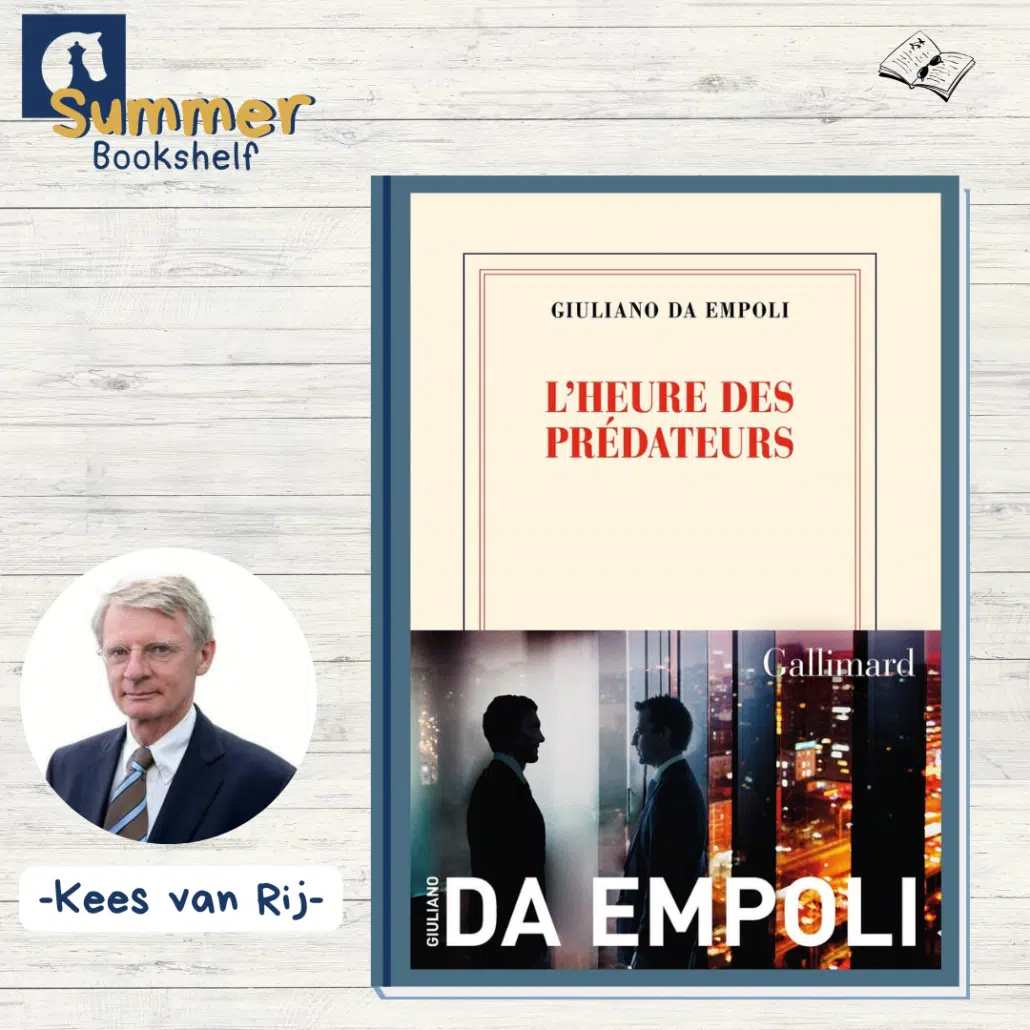
Strategic Advisor Kees van Rij:
“L’heure des prédateurs” by Giuliano da Empoli
About the big tech bosses who, in close collaboration with political autocrats, are constantly expanding their power and influence, thus posing a potential threat to democracy. Translated into Dutch as “Het uur van de wolven” (The Hour of the Wolves), the author of “Kremlin fluisteraar” (The Kremlin Whisperer, 2022) and “Ingenieurs van de Chaos” (Engineers of Chaos, 2019), once again paints a damning picture of the mega-business predator tycoons (Musk, Thiel, Andreessen, Altman, and also Zuckerberg and Bezos) who, with the consent and active cooperation of authoritarian political leaders (Trump, Vance, Bukele, Milei, MBS) to take control of internet data, social media, and AI, thereby attempting to control entire populations (including through the ballot box) without paying much attention to laws and citizens’ rights, under the guise of transparency and innovation. It is striking that as early as 2015, Henry Kissinger pointed out in an essay the unparalleled threat that AI would become and, with it, a threat to the political organization of our societies. Beautifully and concisely written (only 152 pages) with striking examples of the impending chaos that these “predators” are causing to the detriment of the economically disadvantaged in our societies.

Strategic Analyst Laura Jasper recommends:
“Altamar” by Peter Schechter and Muni Jensen
This international affairs podcast is hosted by former Atlantic Council Senior Vice President for Strategic Initiatives Peter Schechter and Muni Jensen former Colombian diplomat and current columnist. They feature interviews with leading journalists, authors, and policymakers for an insider’s view on discussing major world issues. Episodes are rather short of approx. 30min.
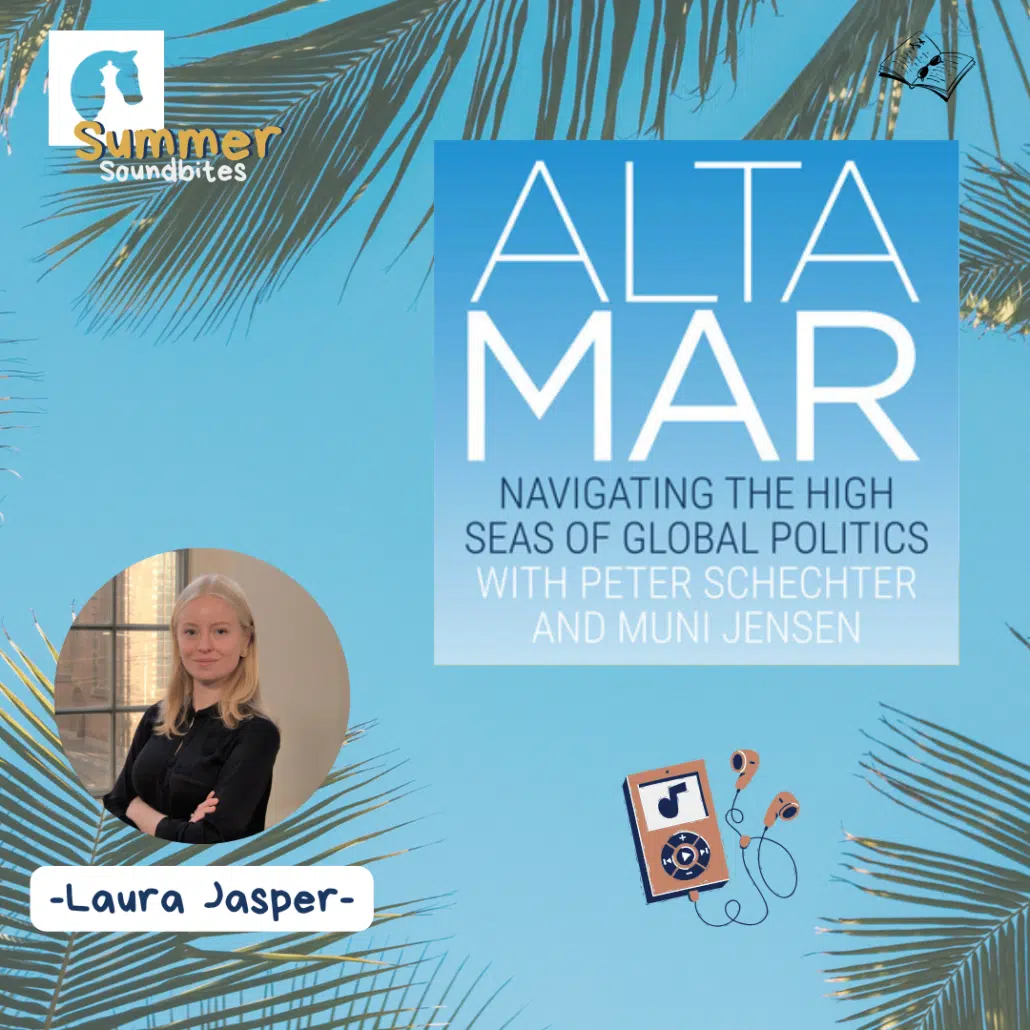
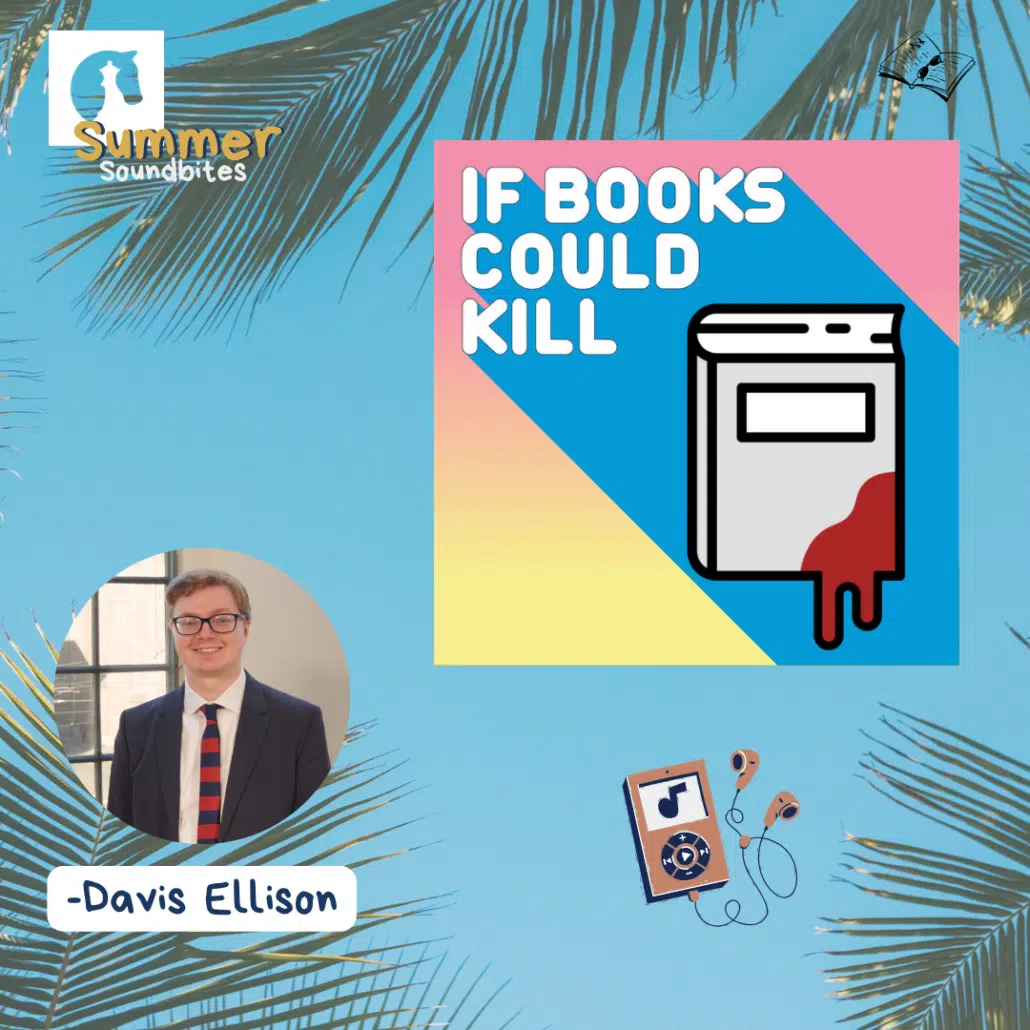
Strategic Analyst Davis Ellison recommends:
“If Books Could Kill “by Michael Hobbes and Peter Shamshiri
This fantastic podcast covers books/articles/intellectual discourses that have had (mostly negative) impacts on politics and our lives. They cover everything from international relations scholars, New York Times op-ed writers, and airport book authors, and track how each case has either sparked or contributed to narrative shifts that have shaped our politics for the worse.
Assistant Analyst Ciaran Cassidy recommends:
“The Literature and History Podcast” by Doug Metzger
A monthly podcast that does wonderful deep dives into literature and the historical context it emerged from. Every podcast tackles one text and explains the life of the author alongside the broader historical and literary influences that shaped them. Started with ancient Mesopotamia, before covering ancient Greece and Rome. Currently releasing some fascinating episodes on pre-Islamic Arabia.
